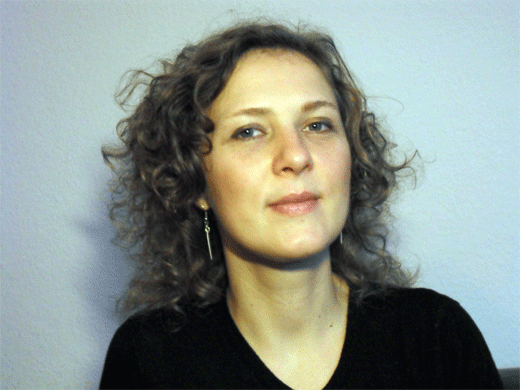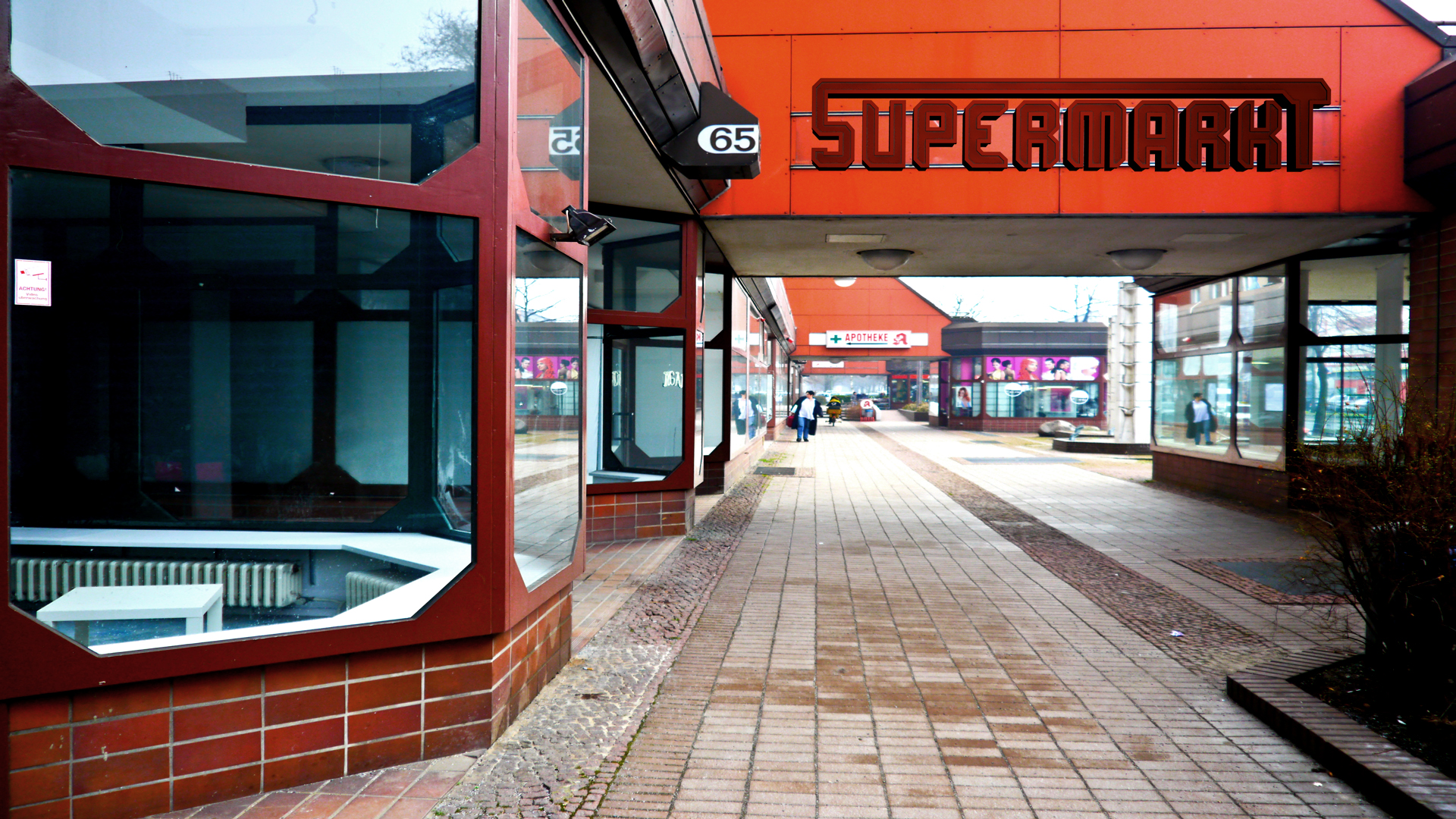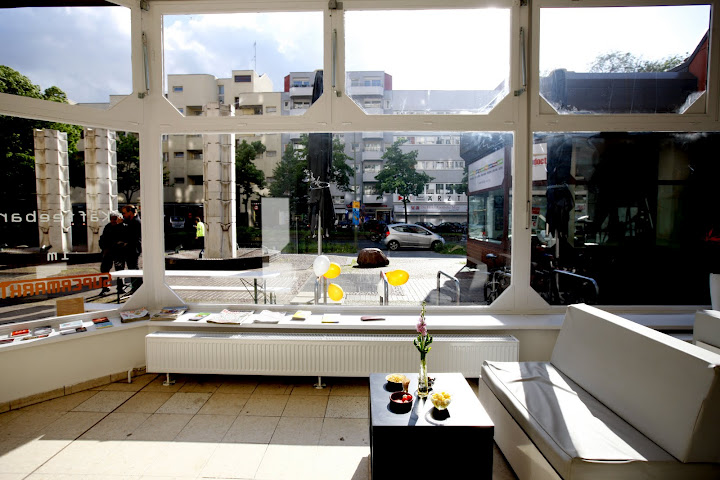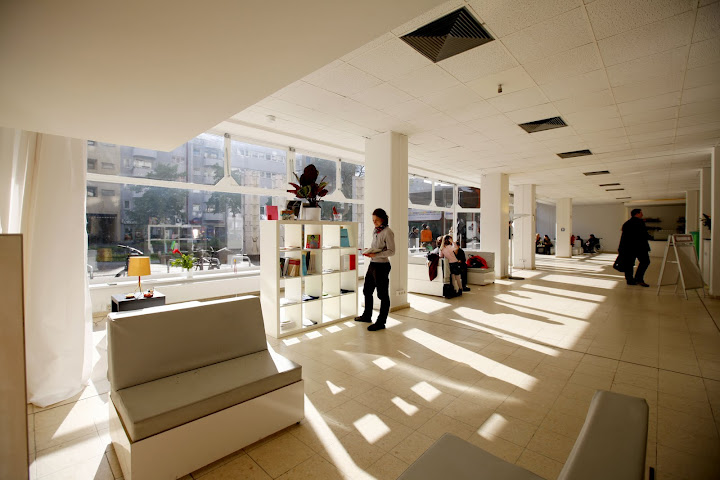By Eva Kekou, 4Humanities International Correspondent
Ela Kagel is a freelance curator and producer. She is the co-initiator of the Mobile Studios project and curator of Upgrade! Berlin, a series of events on digital culture. Since 2010 she has been the director of the Free Culture Incubator, a series of workshops and events based on free and open culture. Very recently, she founded the Supermarkt, Berlin’s free culture department store, where she developed the program for 2012.

Ela has focused her work on the intersection of art and technology, with a special interest in digital culture. On this basis she has created interface structures and concepts for various cultural events: media art exhibitions, networked performances, mobile applications, television formats, ambient computing and/or multimedia exhibition design – and very often in combination.
From 2009 until 2011 she was the program curator of the Transmediale Festival for Art and Digital Culture in Berlin. I was lucky enough to meet her, as I am part of the Upgrade! international network and I have acted as curator of the Athens node since 2011. I met Ela in person in Berlin at Transmediale Berlin in 2010 and since then we have been in touch. I recently asked her for an interview, as I wanted to share her experiences with the Berlin art scene and culture and also her experiences as an organizer of major festivals and art events, particularly in Germany but also in other countries worldwide.
Here you go!
Eva Kekou: I was at the 2010 Transmediale Berlin where we first met. Congratulations again on the great work. Can you give us some information about Transmediale as an event and also how you got involved and your role and involvement as a curator?
Ela Klagel: I had the pleasure of being part of Transmediale’s curatorial team for tm10 and tm11. Transmediale is one of Europe’s leading festivals on art and digital culture. The festival re-invents itself every year with a new program and new curators/contributors, which I personally think is the key to the innovative development of such a festival. I joined the team in 2009 and Stephen Kovats, former director of the festival, has since invited me to act as a program curator. This was a great chance for me to establish the Free Culture Incubator, a research platform on the price and value of freelance creative work.
Eva Kekou: How is Transmediale developing now, in your opinion?
Ela Klagel: I am very excited about the way the festival is developing. I think Kristoffer Gansing and his team are doing an amazing job. When I was introduced to the upcoming theme “BWPWAP” (Back When Pluto Was A Planet) I thought: “wow, they really hit the Zeitgeist!” Apart from the festival itself, Tatiana Bazzichelli is working on a year-round program that helps to increase the visibility of the festival throughout the whole year. She has established the reSource –platform, which has turned out to be a valuable networking tool for the Berlin digital arts community.
Eva Kekou: How’s the art scene in Berlin, particularly media art, and also, how do festivals contribute to this already active scene?
Ela Klagel: The art scene in Berlin is quite diverse, as you can imagine. Right now, there is certainly a move towards a more political approach in the arts and people understand themselves more as part of a collective. This has not always been the case, because it was very easy to live in Berlin as an artist (in terms of living costs, available spaces etc.), so there was maybe not such a need to partner up with others. This is changing now and people are realizing more and more that they are more powerful when they unite their resources and strengths.

Eva Kekou: I know you now run SUPERMARKT. Can you give us a sense of how it all started and how it has been so far?
Ela Klagel: After my work with Transmediale, I became a mother and decided that it would be about time to end the nomadic life and rather settle down somewhere for the next few years. It was by chance that I discovered the SUPERMARKT, which used to be a grocery store. My two partners Zsolt Szentirmai and David Farine and I decided that it would be great to convert the space into a cultural resource center. It took us one year to negotiate the conditions and raise the money and we started off in January 2012. We curate our own program, which is based on themes such as digital culture, alternative economies and social innovation. The space is slowly turning into a real hub, with people hanging out and working on projects, and with regular events and meetups. We just had a little pre-Christmas dinner with around 50 people who are all part of the SUPERMARKT family and neighbourhood. It was only then that we realized that we are building a real community around the space. And this was also our most important aim. On the other hand, running a space can be extremely challenging. If you have an open space, you can’t curate your audience. So SUPERMARKT sometimes is not only a space for cultural and social encounters, but also for irritation (which is ok – you can’t control the flow of people and ideas coming in).
Eva Kekou: Can you give us some information about the activities, events and artists involved?
Ela Klagel: We have had a very diverse program in 2012. We are especially proud that we could help support important cultural initiatives such as the C3S (Cultural Commons Collecting Society – an alternative to major German collecting society GEMA) or the #OSJUBA conference, which has now turned into a major conference on open source technologies in post-conflict countries. We also managed to establish a very interesting series of our DIY master classes with topics surrounding freelance cultural and creative work. We are also proud of lectures and panel discussions with guests like Nancy Fraser and Trebor Scholz.
Eva Kekou: I know you also helped by BIII in Berlin this year. Can you tell us about this experience?
Ela Klagel: I consulted the curatorial team from the Tagesprogramm of the B3 Biennale. Together with the team, I developed the idea of an open laboratory for media production, where the audience can walk around and attend various events that happen simultaneously. This went really well and I was happy with the outcome.
Eva Kekou: How did you envision your role as a curator when you first started?

Ela Klagel: I thought curating would be totally based on control, but the more I work in this field the more I realize that curating means having a clear vision – but flexible ways to get there. Sometimes it’s far more important to let go of control and to seek new, surprising ways, always with your goal in mind, of course. That’s the real quality of designing collaborative spaces: to be determined, focused and very flexible at the same time. And I also realize the importance of communication. It takes a lot of experience in order to get your message across to all the different players involved. It’s a lot of translation work, too.
Eva KekouWhat difficulties have you encountered and how is the situation for a curator in Berlin?
Ela Klagel: Sometimes people don’t understand what a curator is actually doing and why you would want to call yourself a curator. It’s a somewhat odd term in German. So unless you are part of the official art scene it might be difficult to communicate the value of your work to the outside world. And then of course money is a constant issue, but tell me of a place where it’s not….

Eva Kekou: What are your aims for the future both with SUPERMARKT and also as a curator?
Ela Klagel: My aims for SUPERMARKT and myself are quite identical: I hope that I will maintain the ability to see the world in all its beauty, craziness, vulnerability, instability and contradictions and that I will never stop coming up with questions that keep me going.
And as far as the venue goes, I hope we can identify themes that really touch people, and that we will be able to partner up with these people and together make outstanding things happen.